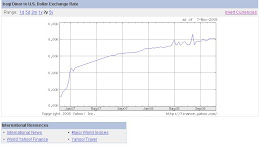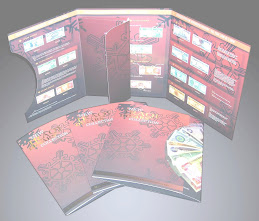After the fall of Saddam Hussein, he put his plan into action. Why name the school American University? Because, he says, Iraqis are grateful to the United States for liberating them--nowhere more so than in Kurdistan. Besides, he adds, "American education is among the best products the U.S. can offer."
Perhaps. But Iraq's American University will be a largely homegrown effort. The local Sulaymaniyah government donated the land for the project--some 162 hectares, with room for a future golf course--and Salih has managed to raise $15.2 million in start-up capital from private donors. Construction won't begin until next March and will take about a year and a half to complete. Meanwhile, the first students will start classes in January in rented offices not far from the future campus.
They'll begin with intensive English to prepare for regular university courses, which will all be taught in English as in the other five American Universities around the world, including three in the Arab world: Cairo, Beirut and Sharjah (U.A.E.). "It's not just Dick-and-Jane, let's-learn-how-to-order-in-restaurant English," says John Agresto, a former U.S adviser to the Iraqi Ministry of Higher Education and the only non-Iraqi member of the college's board of trustees. Language lessons will be supplemented by Western philosophical and political teachings, including the Federalist Papers and other founding documents of American democracy.
The school's emphasis on a liberal-arts education distinguishes it from Iraq's 63 other universities and technical institutes, which tend to specialize in the sciences and engineering. (Top students in Iraq who study medicine, for instance, rarely receive any training in social sciences or humanities.) At least initially, though, the college will focus on economics, public and business administration, political science and information technology--all of which are critical to Iraq's future. Perhaps appropriately for an American-style university, its first degree offering will be an executive M.B.A.
The first year's class will be small--about 250 students--but administrators expect to expand quickly, to 1,000 students per class by 2011 and twice that by 2015. Most students will receive substantial scholarships. Though located in Kurdistan, the university will be open to all Iraqis, school officials emphasize, regardless of religion or ethnicity. "At the end of the day, we care about the same things in life--basic values of liberty and decency," says Salih. "When you bring people together and develop human interaction, they will see Iraq's diversity is an asset, not a problem."
Indeed, Iraqis from all parts of the country have already been calling board members and begging to have their children admitted. Officials insist that admissions standards will be high and transparent--meaning no one will be able to beg or buy his way in. Ultimately, Salih hopes his new creation will help restore his country to the educational pinnacle of the Arab world. Only then can Iraq reverse the exodus of its best and brightest young people, which, after the ongoing sectarian violence, is perhaps the greatest challenge to the country's future.(Source)AINA

